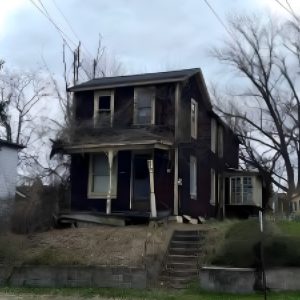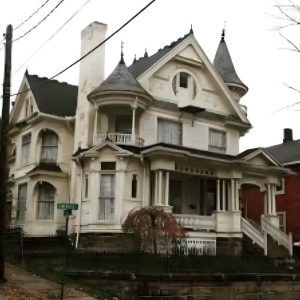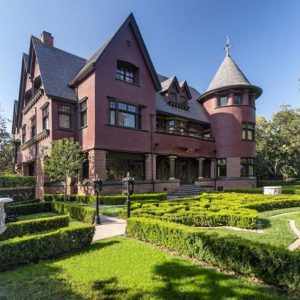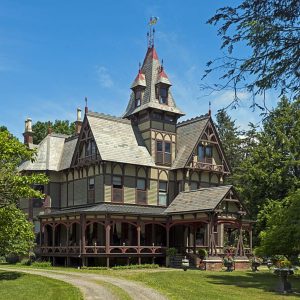Opened in 1909, Letchworth Village was a residential institution located in Rockland County, New York.
It’s in the hamlet of Thiells built for the physically and mentally disabled of all ages, from the newborn to the elderly.
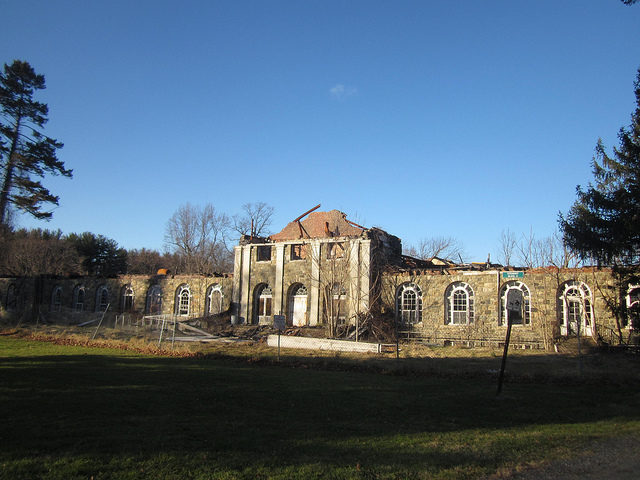
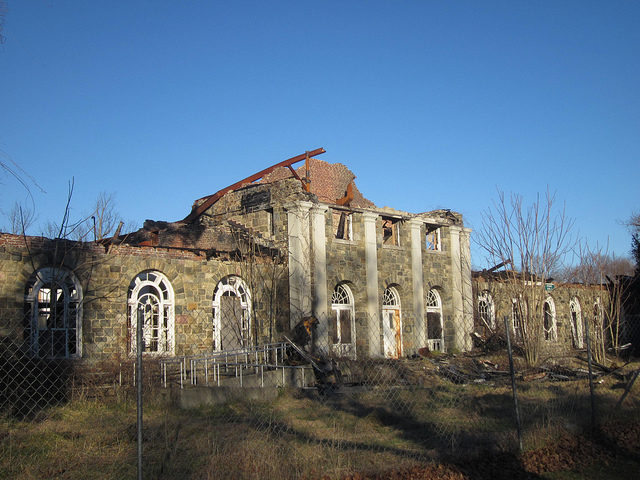
The facility was named for William Pryor Letchworth, a key player in its creation, and a noted humanitarian of the time.
In order to avoid creating an institutional environment for the patients, the grounds were arranged much like a college campus, with a multitude of structures dotting the landscape. Photos: Doug Kerr/Flickr
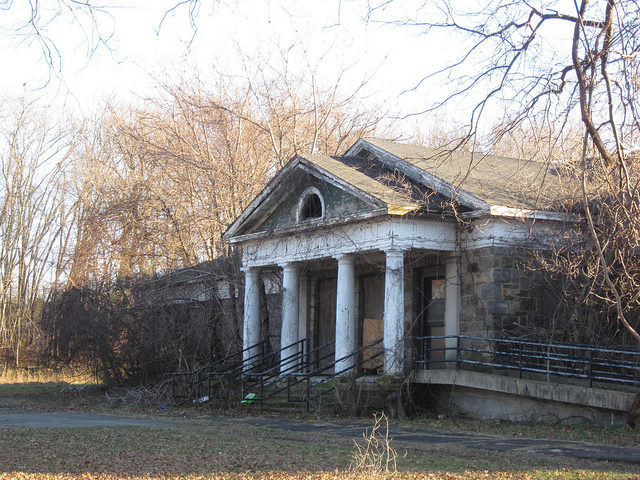
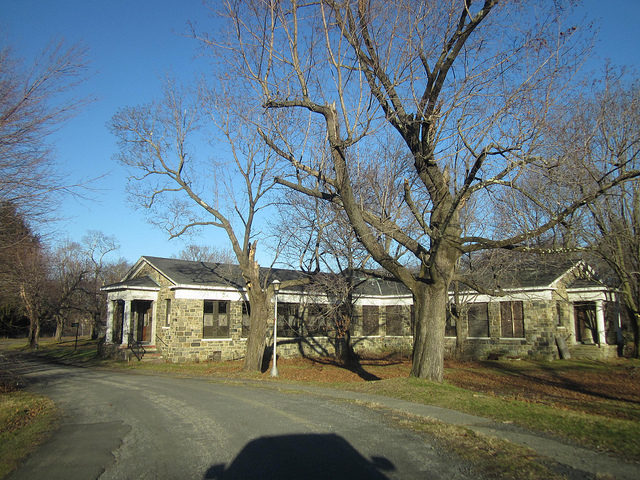
It was set up much like a college campus with multiple small buildings in an attempt to avoid an institution-like feel. At its peak, Letchworth Village consisted of over 130 buildings spread out over many acres of land.
The buildings were relatively small, typically not exceeding two stories in height, and were inspired by the aesthetics of Greek architecture. Walls of carefully hand-cut stone punctuated by arched windows and column-girded doorways could be found at every turn.
Short walks across grassy lawns separated the buildings, and the greater campus, known as Letchworth Village, housed its own power plant, farmland, waste disposal and water supply.
The buildings were separated into groups that were divided by mental capacity, and these groups should not come into contact with each other. Each group was isolated enough to almost seem like a separate institution.
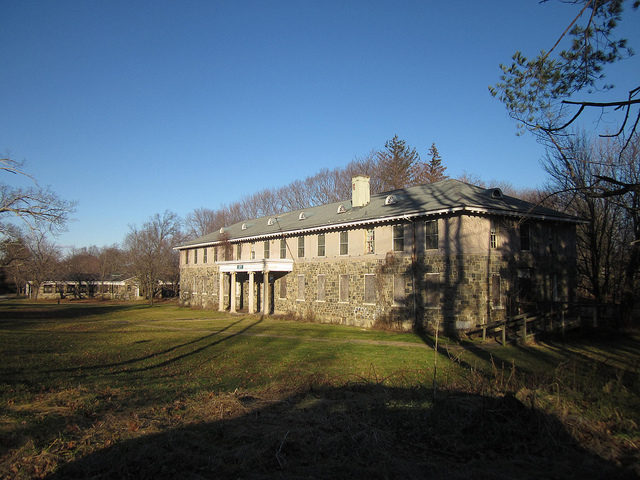
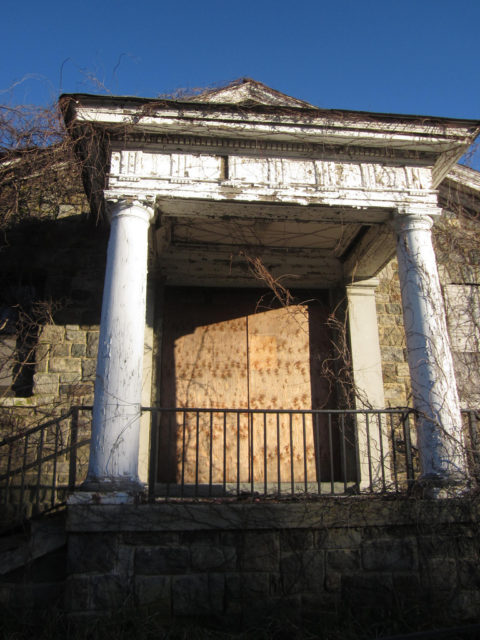
On February 27, 1950, the first trial case of the polio vaccine in the United States was administered to an 8-year-old patient by Hilary Koprowski, after he tried it on himself.
After the patient suffered no side effects, the vaccine was administered to 19 more of the institution’s children. Out of a total of 20 children, 17 developed antibodies to the virus, and none developed any complications.
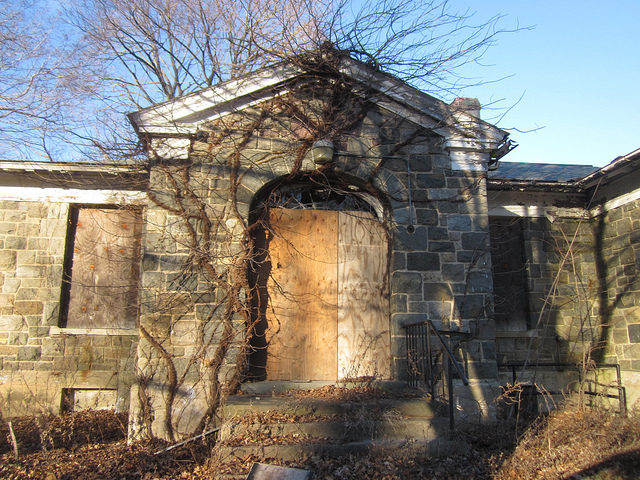
It was the first of its breed – A village-styled hospital center that was all-inclusive and could operate completely isolated from the outside world. Letchworth Village reached its 3,000-patient limit in 1935.
New arrivals from places like New York’s Bellevue Hospital overcrowded the facilities and overwhelmed the staff. In the 1970s, funding dried up and the staff on hand was not able to care for the patients at the level they required.
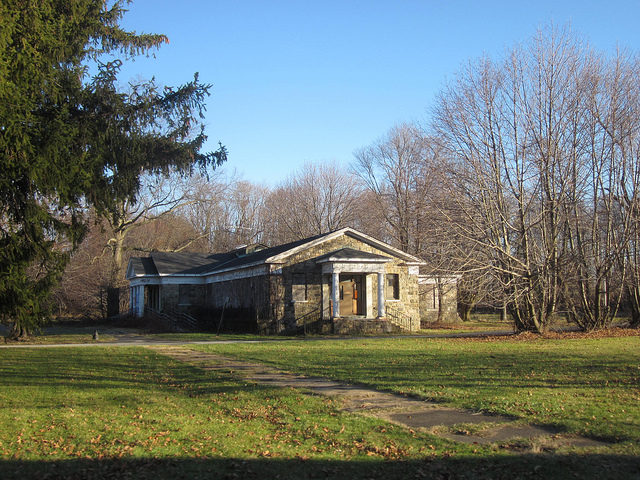
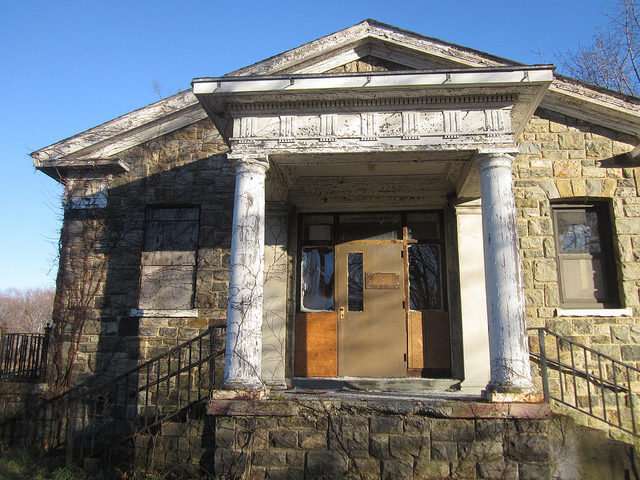
In 1996 the institution was permanently closed down, leaving the buildings to decay. Patients were moved to more up-to-date facilities in the county.
The large campus now lies in the crux of the three towns of Haverstraw, Theills, and Stony Point. Much of the open land has been repurposed into a golf course, and one of the groups of buildings has been renovated into the Fieldstone Secondary School, which has retained the look and feel of the original cottages.
Many of the buildings are abandoned, however, and some have fallen victim to arson, such as Kirkbride Hall and the laboratory.
